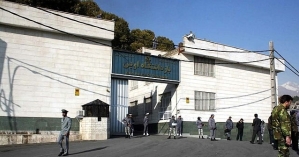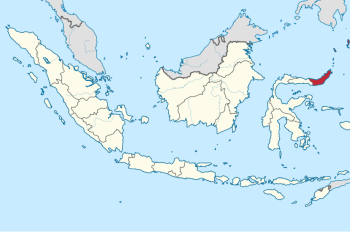Noting a widespread wave of arrests of religious minorities in Iran since June, the U.N. General Assembly last month adopted a resolution calling on the Islamic regime to “cease the widespread and systematic use of arbitrary arrests and detention.”
The Nov. 15 resolution, which passed 80 votes to 29 with 65 abstentions, identified Christians and especially converts from Islam among the recognized and unrecognized religious minorities affected by violations, “including but not limited to increased harassment, intimidation, persecution, arbitrary arrest and detention, and incitement to hatred that leads to violence,” according to advocacy group Article 18.
The group reported that it had documented 106 arrests between June 1 and September, the “vast majority” of them Christians. Most have been released but under harsh restrictions.

“Those who have been released have reported being forced to sign commitments to refrain from further Christian activities or ordered to attend Islamic re-education sessions,” Article 18 reported. “Others said they were summoned for further questioning in the days after their release or ordered to leave Iran, while one said his employment was terminated at the request of intelligence agents.”
Some of those detained were charged with “acting against the national security through establishing or membership of a house church,” according to a report by the U.N. Secretary-General in October.
The total number of arrests of Christians thus far in 2023 is similar to that of previous years, “but what is different is that the vast majority of arrests occurred over just a few weeks from the beginning of July,” said a representative of advocacy group Middle East Concern (MEC).
“The arrests of Christians coincided with arrests of members of other religious communities as well,” said the MEC representative, whose name is withheld for security reasons. “Of course, the reason is a matter of conjecture, and it might be that someone high up gave the order for the security apparatus to put pressure on those more active in promoting their beliefs, leading to conversions – but we can only guess at present.”
Bail amounts to obtain release were exorbitant, ranging from $8,000 (400 million tomans) to $40,000 (2 billion tomans), according to Article 18.
The arrests took place across 12 cities, the group reported; while most were converts to Christianity, at least two arrested were Iranian-Amenians, presumably raised as Christians from birth.
“The rash of new arrests of Christians have coincided with a renewed crackdown on Iran’s Baha’i community, which alongside Christian converts is another unrecognized religious minority group,” Article 18 reported.
The U.N. resolution appeared to draw heavily on Article 18’s reporting. Iran’s representative to the U.N. dismissed the resolution as biased and “politically motivated,” saying the “classic cast of characters and the usual suspects,” i.e. Canada, the United Kingdom, France, Germany, the United States and Israel, were using it “to advance their political agenda.”
Canada had introduced the resolution, which called on Iran to “cease monitoring individuals on account of their religious identity” and “release all religious practitioners imprisoned for their membership in or activities on behalf of a minority religious group.”
The resolution “expresses serious concern at the widespread restrictions on the rights to freedom of peaceful assembly and association and freedom of opinion and expression, both online and offline,” Article 18 noted. The resolution also criticized recent amendments to articles 499 and 500 of the Islamic Penal Code, saying they “significantly escalated discrimination and violence…and other human rights violations against persons belonging to recognized and unrecognized religious minorities.”
Australia’s representative to the U.N. expressed grave concern “about the deteriorating human rights situation in Iran, especially around the persecution of women and girls and oppression of ethnic and religious minorities.”
Objecting to the “country-specific” nature of the resolution as threatening national sovereignty were the U.N. representatives of Russia, Venezuela, North Korea, China, Pakistan, Cuba, Nicaragua, Syria, Eritrea and Belarus, Article 18 noted.
Australia’s representative responded by saying, “U.N. member states are indeed sovereign, but sovereignty is not a shield against international scrutiny for behavior that impinges on universal human rights. No country is above fair scrutiny of its human rights obligations. The international community cannot turn a blind eye to these violations and suggest that deaths, violence, arbitrary detention, discrimination and oppression are internal matters. To do so would be to ignore the human rights of the individuals that we, the United Nations, have committed to promote and protect.”
Those convicted of “disrupting national security” or other legal pretexts for arresting religious minorities are usually not sent to prison immediately, but must wait months to be summoned with no prior notice. Ethnic Armenian Iranian Anooshavan Avedian, arrested in 2020 from a prayer meeting at his home in Narmak, northeast of Tehran, was summoned to prison on Sept. 13 – more than a year after he lost an appeal in May 2022 following his sentencing in April of that year.
The 61-year-old Avedian was sentenced to 10 years in prison, to be followed by 10 years of “deprivation of social rights” including restrictions on employment, for “establishing and leading an illegal group with the aim of disrupting the security of the country through educational and propaganda activities, contrary to and disturbing to the holy religion of Islam, through the dissemination of false claims,” according to Dublin, Ireland-based aid and advocacy group Church in Chains.
“The verdict was issued by Judge Iman Afshari, who has built a reputation in recent years by issuing harsh sentences against Christians,” Church in Chains noted in a press statement.
Article 18 reported that authorities contacted Avedian on Sept. 11, the same day another Iranian-Armenian pastor, Joseph Shahbazian, was released from Evin Prison.
“The timing of Anooshavan’s summons showed that the general policy of the Iranian government towards Christians has not changed,” Article 18 Director Mansour Borji noted on the group’s website. “Although we have seen a number of Christians released this year, the fact that somebody has now gone to prison on the same charges or for the same activities for which others have been pardoned or released, or had their sentences reduced, shows the arbitrary nature of the judicial system in Iran.”





